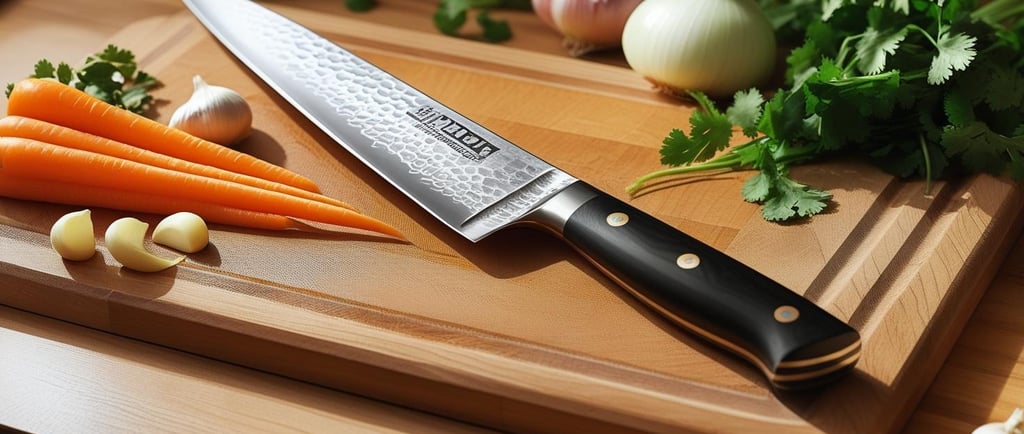Why Every Home Cook Needs a Chef Knife: Uses, Tips & Differences
DKinfe


Whether you're a beginner in the kitchen or a seasoned home cook, a chef knife is one of the most powerful tools you can have. It's not just a blade—it’s a multitasker that handles 90% of your prep work with ease.
1. What Is a Chef Knife Used For?
The chef knife (also known as a cook's knife) is incredibly versatile. Typically 6 to 10 inches long, it features a curved blade that allows you to rock it back and forth on the cutting board.
Here’s what it’s commonly used for:
Chopping vegetables and herbs
Slicing meats and poultry
Dicing onions, carrots, and garlic
Mincing nuts or fresh herbs
Crushing garlic or lemongrass
This knife truly does it all—once you start using one, you’ll rarely need to reach for another blade.
2. Chef Knife vs. Santoku Knife
Many people also consider the santoku knife, a Japanese-style multipurpose knife. While both knives serve similar roles, they have some key differences:
Chef Knife: Curved blade, ideal for rocking motions; great for meats, herbs, and bulk prep.
Santoku Knife: Straighter edge, designed for a straight up-and-down cut; excellent for vegetables and precision work.
If your cutting style leans toward rocking, the chef knife is perfect. If you prefer clean, straight slices, you might love the santoku.
3. How to Use a Chef Knife Effectively
Using a chef knife isn’t just about holding and cutting—it’s about technique:
Use a pinch grip for better control (thumb and forefinger gripping the blade).
Rock the blade rather than chopping vertically.
Anchor the tip on the cutting board and pivot through the motion.
Keep it sharp. A dull knife is more dangerous than a sharp one.
Mastering your grip and motion makes food prep faster and safer.
4. Why Every Kitchen Needs One
There’s a reason professional chefs reach for a chef knife before anything else—it’s reliable, efficient, and feels like an extension of your hand. Investing in a good kitchen knife will instantly improve your cooking experience.
Whether you’re slicing tomatoes or breaking down a chicken, a high-quality chef knife saves time and adds precision.
Conclusion: Your Essential Kitchen Tool
A chef knife isn’t just for professionals—it’s for anyone who values ease, control, and efficiency in the kitchen. Once you find the right one, you’ll wonder how you ever cooked without it.
✅ FAQ
Q1: Can a chef knife be used to cut meat and bones?
A chef knife is excellent for slicing meat, but it’s not ideal for cutting through bones. For bone work, use a cleaver or a boning knife.
Q2: What size chef knife is best for beginners?
An 8-inch chef knife is the most recommended for beginners—it offers a great balance between control and cutting surface.
Q3: Do I need both a chef knife and a santoku knife?
Not necessarily. If you prefer Western cooking styles and rocking cuts, a chef knife is enough. If you do a lot of fine vegetable prep or Japanese cuisine, a santoku knife can complement it well.
About Dknifetunn
It’s a trusted companion in your kitchen journey.Cut Beyond Limits
Contact
POLICY
© 2025. All rights reserved.
Brand
SHAN ZU
PAUDIU
ROBERWLECH
HOSHANHO
3300 Boul Industriel, Laval, QC
CANADA
H7L 4S3
RETURN POLICY
PRIVACY POLICY
TERMS AND CONDITIONS
